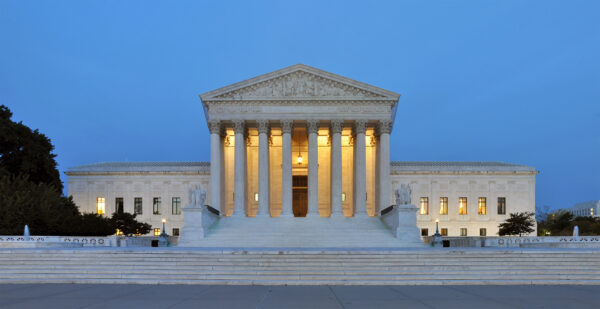
The U.S. Supreme Court on Wednesday has allowed New York State’s restrictive new concealed carry law remain in effect “at least for now,” according to ScotusBlog, which suggests that could change after the various challenges wind their way through the lower federal courts.
As reported by Forbes, “The legality of the New York law will now play out in the lower courts, and it’s possible it could reach the Supreme Court again. If it does, it’s more likely the 6-3 conservative court could rule against the law.”
New York lawmakers moved swiftly last year to adopt a new law after the high court struck down the century-old concealed carry law which required applicants for carry permits to provide a “good cause,” which allowed arbitrary rejections. The new statute expands the list of so-called “sensitive places” where guns may not be legally carried, including churches and public parks, and private property unless the property owner allows it. It also requires an applicant to provide proof of “good moral character.”
The new law drew several legal challenges, and in November, federal District Judge Glenn Suddaby barred the state from enforcing key elements of the law, which was dubbed the Concealed Carry Improvement Act, a title which has been challenged by gun rights activists as laughably misleading.
According to CNN, Associate Justices Samuel Alito and Clarence Thomas—who authored last year’s majority opinion in the Bruen case striking down New York’s law—sent “a strong signal” they are carefully monitoring the Empire State gun cases “to ensure federal courts do not thumb their noses at the high court’s landmark decision” last June. The result of the Bruen decision has been a flurry of legal actions by gun rights organizations and some successes, which CNN says has alarmed some judges and activists in the gun prohibition movement.
“The Supreme Court is bracing for an onslaught of new applications as lawyers, judges and advocates on both sides of the issue sort out the new landscape of gun rights,” CNN reported. “All sides wonder if the justices will weigh in substantively any time soon, or allow, as it has before, the issue to percolate in the lower courts.”
It took 12 years for the high court to allow another gun rights case after the 2010 ruling in McDonald v. City of Chicago, a case brought by the Second Amendment Foundation and Illinois State Rifle Association. But there was a strong hint from the high court this would not be repeated because one week after the Bruen decision, the court granted certiorari to four Second Amendment cases, subsequently vacating the lower court rulings that brought the cases to the Supreme Court level, and then remanding each case back to the lower courts for further action based on new Second Amendment guidelines included in Bruen.



